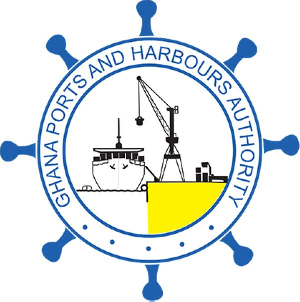The Public Interest and Accountability Committee (PIAC) has warned against government’s proposed amendment of the Petroleum Revenue Management Act (PRMA) in its bid to access the Ghana Heritage Fund.
In a statement, PIAC said the proposal could expose the Act to future abuse; and that any amendment of the PRMA, under the current circumstances, would come across as reactionary and a risky option: “Accessing the Heritage Fund will not only dim the spirit of the law, but also derail the country’s intended purpose of applying international best governance practices to our hydrocarbon resources”.
The Committee therefore cautioned that the country risks slipping back into the very terrain that necessitated promulgation of the PRMA in 2011, if such actions are entertained.
PIAC maintains that despite the fund being primarily future generation-oriented, it equally provides opportunity for the current generation to benefit from the interest earned on its investment after 15 years, subject to a two-third majority approval in Parliament.
“It is worth emphasising that the Heritage Fund receives only nine percent of the country’s petroleum revenues in a given fiscal year. This makes available a whopping 91 percent of petroleum revenue for government spending,” the statement added.
The statement followsa proposal by the Minister of Finance, Ken Ofori-Atta, for parliament to “amend the PRMA to allow a withdrawal from the Ghana Heritage Fund to undertake emergency expenditures in periods of national emergency”.
PIAC acknowledged the threat that the COVID-19 pandemic poses tothe Ghanaian society and the world at large, adding that government’s search for resources to address economic impacts of the pandemic is in the right direction.
Although the health sector has featured in the Annual Budget Funding Amount (ABFA) expenditure since 2011, PIAC said allocations to the sector have however been paltry, even after its selection as a priority area for the period 2017 – 2019. “This pattern has translated into the poor state of the country’s health system, as exposed by the COVID-19 pandemic.”
It also reckoned that the actions of successive governments have contributed to the state where very little has been made available to cater for such national emergencies as is being experienced.
For instance, on government’s intention to lower the cap on the Ghana Stabilisation Fund (GSF) to US$100million in order to use the excess for contingency purposes, it said the PRMA is not oblivious to national emergencies and makes provision for transfers from the Ghana Stabilisation Fund (GSF) into the Contingency Fund.
The statement however added that governments over the years have made limited petroleum revenue transfers into the Contingency Fund, thereby depriving it of the needed resources for addressing emergencies such as the COVID-19 pandemic.
The Ghana Stabilisation Fund (GSF) is meant for shoring-up the ABFA in times of budget shortfalls, providing for contingency and debt servicing. However, withdrawals from the Ghana Stabilisation Fund (GSF) over the years have been heavily tilted in favour of debt servicing, as against a balance between the budget, debt servicing and contingency purposes.
The Committee, which is mandated by law to police the utilisation of petroleum revenue, in view of these developments has therefore outlined some recommendations for consideration while urging government not to disturb the arrangements which underpin the PRMA.
It recommended that for the short-term, government must review and reduce planned 2020 ABFA expenditure and apply the savings to the COVID-19 Alleviation Programme (CAP). “Reduce the capital expenditure focusing on roads and infrastructure.”
It also recommended that other domestic revenue sources such as cocoa and minerals should be explored, given that these sectors are still in active operation. “There must be a balance in allocating funds to the budget, the Sinking and Contingency Funds, as skewed withdrawals toward debt servicing have not prepared the country for national emergencies.
“Even though the health sector is a priority area for ABFA expenditure, the pandemic has reinforced the sector’s critical nature with its interconnections to economic development, national security, food security and survival of the citizenry. Government must therefore review allocations to the sector vis-à-vis allocations to other priority areas (roads & rail, education and agriculture).”
Business News of Wednesday, 8 April 2020
Source: thebftonline.com













